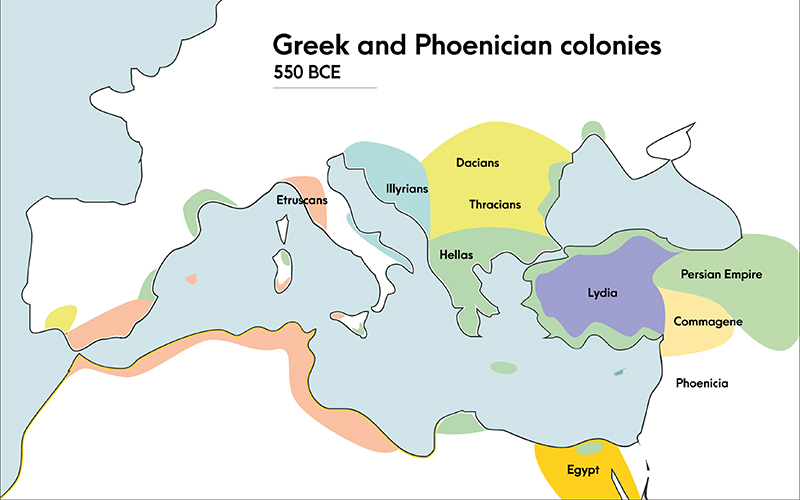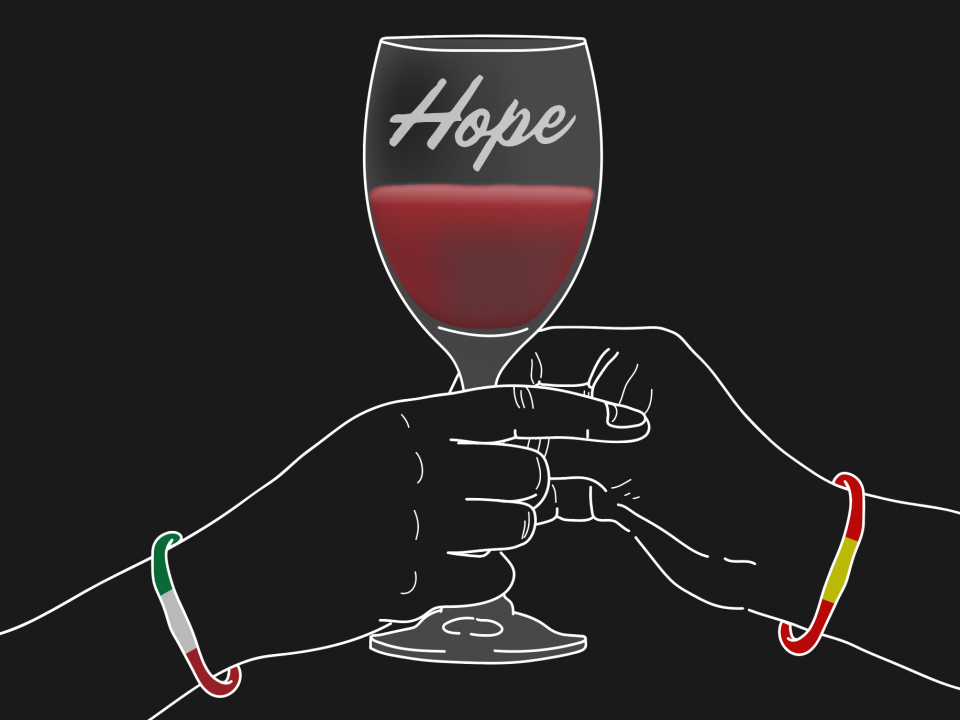
NGO introduces Russia to European quality wine from Central Italy one sip at a time
June 14, 2019
Native Grape Odyssey goes on a Russian Odyssey to discover that a Symphony needs a Maestro
June 19, 2019Wine Culture in Ancient Greece
In the long history of wine, Ancient Greece presents us with a milestone; a true wine culture developed in this region, so much so that it influenced every aspect of daily and religious life. We have evidence of this from various archeological sources as well as literary ones. Homer provides ample information about wine’s role in Ancient Greece through his epic poems.
For example, in the Odyssey he writes that Greek people ate three times a day (today’s breakfast, lunch and dinner) and that wine was consumed with every meal; at least by people who could afford it. The reason for this inference is that wine production required considerable land and labor, consequently, wine was a symbol of social prestige. Dr. Attilio Scienza in his book La Stirpe del Vino (Sperling & Kupfer, 2018), writes that there were a considerable number of vine varieties in ancient times and this was partly due to Greece’s numerous micro-climates; he goes onto say that it was not uncommon for Homer’s epic heroes to arrive in a new land and describe the typical vines and wines, such as was the case with Ulysses homeland Ithaca. Ulysses described Ithaca as being full of wheat and wine despite being rather arid and not very expansive. Broadly speaking, wine plays an important role in the Odyssey, it is a component in several chapters of Ulysses’ journey, such as when the beautiful Circe offers wine mixed with drugs to his shipmates before transforming them into pigs, or once again when the crew must escape the Cyclops Polyphemus. In the latter situation, the wine used to subdue the giant is described as being strong and dark and from Ismaro, a town in Thrace.
From Greece to Italy

The map indicates Greek and Phoenician colonies in 550 BCE.
The Odyssey actually provides even more detail about the origins of European wines: reading Homer’s masterpiece one can also find early evidence of Italian wines as well, specifically Campania’s wines. In his book La Stirpe del Vino, Prof. Attilio Scienza says, “in the Odyssey we read the first testimony concerning the wines of Campania: they come from the island of the Cyclops, that ‘neither plant nor plough, but trust in providence, and live on such wheat, barley, and grapes as grow wild without any kind of tillage, and their wild grapes yield them wine as the sun and the rain may grow them’ ”. This shows us that viniculture was an ancient practice in Italy as well, but it was based on wild grapes, that is, grapes that grew with little or no human intervention.
Viticulture was therefore present in South Italy (Magna Graecia) before Greek settlers arrived, but Greek people brought new techniques for pruning and cultivating, as well as a new culture of wine. Following Ulysses’ route, Greek people landed in Italy and likely introduced the worship of the wine deity, Dionysus, perhaps helping to make wine merchandisable, up until this point it was produced only for personal consumption. Wine likely assumed new symbolic and ritual meaning that went beyond diet; this could be inferred by the practice of the so-called Bacchanalia, the Roman festival that celebrated Bacchus, the Roman version of Dionysus.
Ancient Greece Heritage in Contemporary Italian Grapes
The Bacchanal became extinct a long time ago, but traces of Greek heritage are still present today. Genetic links between Greek and Italian vines were found when DNA analysis was performed on the vines extant in Sicily. Due to this analysis we now know that Magna Graecia’s Greek merchants who had followed the route once sailed by Ulysses, most likely arrived in Italy having brought vine varieties with them from their native land. Therefore, it is not surprising to find that South Italy’s vine varieties have actually more in common with Greek varieties in comparison with North Italy’s vines. Modern DNA research on vines also shows us that many varieties have a father-son relationship, meaning, there are several varieties of vines that originated in Greece that were crossed with local Italian vines. It seems their connection is actually more prevalent than was originally imagined.


